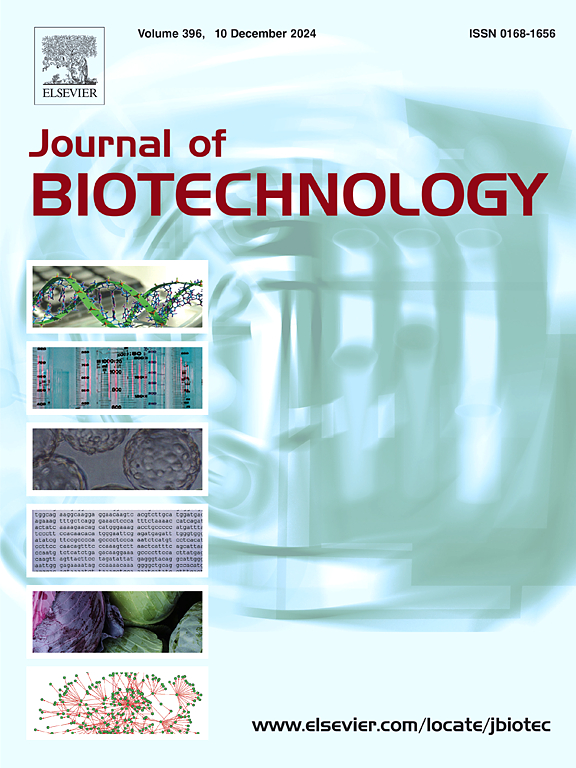Enhanced production of extracellular triacylglycerol lipase for bioplastic degradation by replacing signal peptide
IF 4.1
2区 生物学
Q2 BIOTECHNOLOGY & APPLIED MICROBIOLOGY
引用次数: 0
Abstract
With the increase in plastic production, efficient and timely plastic degradation are urgently needed. In that point, biodegradable plastics have attracted attention as potential solutions for environmental pollution of plastics. However, finding of superior degrading strains and enzymes such as esterase, cutinase, and triacylglycerol lipase (TGL) of bioplastic are still needed together with the efficient secretion systems of degrading enzymes. As a result, we investigated methods to enhance protein expression and secretion of novel bioplastic degrading enzyme by using signal peptides. The genes encoding TGL from Bacillus sp. JY35 and various secretory (Sec) pathway signal peptides were cloned together by replacing the original signal sequence, and they were expressed under T7 promoters in Escherichia coli BL21 (DE3). Esterase activity with p-nitrophenol esters, a plate assay, and SDS-PAGE were performed to screen and evaluate signal peptide efficiency. As a result, the PhoA-TGL combination was the most effective against bioplastic degradation, achieving a Polycaprolactone (PCL) degradation efficiency of 77 %, which was approximately 3.3 times higher than that of TGL with the original signal peptide. Furthermore, Polybutylene succinate (PBS) degradation under similar conditions was 1.5 times higher. Overall, this study showed signal peptide engineering could enhance the extracellular secretion and degradation system of triacylglycerol lipase (TGL) and highlights the potential of PhoA signal peptides and E. coli host to enhance production and secretion of plastic-degrading enzyme and degrading system.
求助全文
约1分钟内获得全文
求助全文
来源期刊

Journal of biotechnology
工程技术-生物工程与应用微生物
CiteScore
8.90
自引率
2.40%
发文量
190
审稿时长
45 days
期刊介绍:
The Journal of Biotechnology has an open access mirror journal, the Journal of Biotechnology: X, sharing the same aims and scope, editorial team, submission system and rigorous peer review.
The Journal provides a medium for the rapid publication of both full-length articles and short communications on novel and innovative aspects of biotechnology. The Journal will accept papers ranging from genetic or molecular biological positions to those covering biochemical, chemical or bioprocess engineering aspects as well as computer application of new software concepts, provided that in each case the material is directly relevant to biotechnological systems. Papers presenting information of a multidisciplinary nature that would not be suitable for publication in a journal devoted to a single discipline, are particularly welcome.
 求助内容:
求助内容: 应助结果提醒方式:
应助结果提醒方式:


